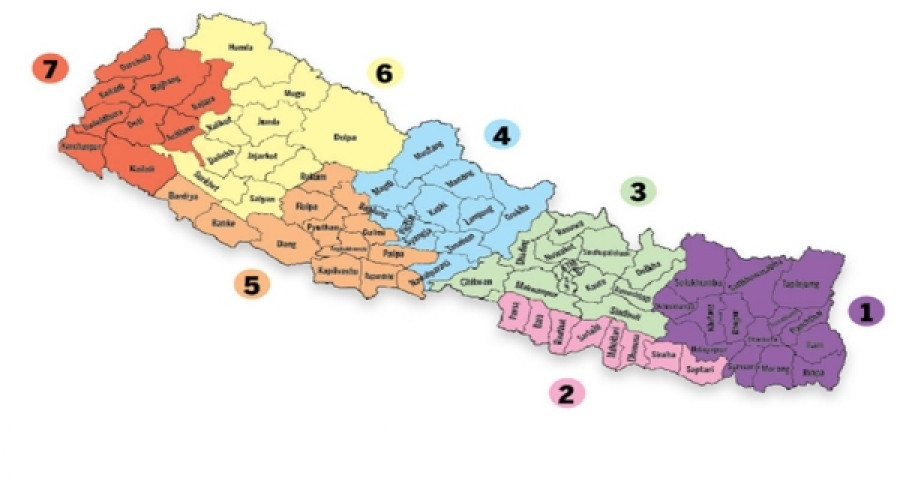Politics
Politicians’ self-centred attitude could put federalism in peril, say experts
Public post holders are increasing their pay and perks instead of spending more on public goods.
Tika R Pradhan
Development, equality, a guarantee of fundamental rights and service delivery at people’s doorsteps were some of the many features Nepal’s political parties and their leaders had listed when they made a pitch for adopting federalism.
But four years after the promulgation of the constitution and two years after the elections—which installed a federal government, seven provincial governments and 753 local councils—people are yet to taste the fruit of federalism. In contrast, experts on federal affairs are expressing concerns whether the political leadership is still committed to implementing federalism.
A case in point is a self-centred tendency among leaders in power—from the federal to provincial to the local level—as instead of trying to improve the lives of people, they have been busy raising their own perks and facilities.
On Friday, the federal government decided to increase the salary of top office-bearers of the country, including the President, Vice President, prime minister and the House Speaker, by 18 percent. This, according to estimates, is likely to add the burden of more than Rs 100 million a year on the state coffers.
On May 5, through a Cabinet decision, Gandaki Province increased the meeting allowances from Rs 750 to Rs 1,000 for the office bearers and members of the provincial assembly. The provincial cabinet also decided to provide half the amount of residential facility to those who have their own homes in Pokhara for maintenance. Party whips are entitled to Rs 10,000 a month if they are not taking vehicles from the government.
Some provinces have increased the salaries and perks for officials through cabinet decisions and have published them on their respective gazette. Others are in the process of increasing the salaries of office bearers.
“We have not increased remunerations and facilities yet. But we will hold discussions after the federal government’s move yesterday of hiking the pay and perks for the high level public post holders,” said Prakash Jwala, the Karnali province minister for financial affairs and planning.
Such trends, however, could be detrimental to the newly adopted federalism which now needs to be institutionalised, say experts on federal affairs.
“Even during the Panchayat regime, 70 percent of the budget was spent on development, while the rest went to general expenses,” said Chandra Kant Gyawali, an advocate who has written nine books on federalism. “But after the 1990s, the ratio changed. Now with the country adopting the federal system, things have gone from bad to worse as public post holders are more focused on their personal benefits than development works.”
When the country was making a move towards federalism, a demand initially put forth by the Maoists who waged a decade-long war against the state, there was no dearth of detractors who said the new system of governance was an expensive affair. There were also concerns whether a country like Nepal with minimal resources could sustain federalism.
“This is probably the best system of governance, but if leaders don’t mend their ways and continue to engage in activities that benefit only them, the country could struggle to sustain federalism,” Gyawali told the Post. “There seems to be an utter lack of understanding among those who are supposed to work to implement federalism.”
The way the local governments—municipalities and rural municipalities, which are the agencies that directly deal with the people—are squandering funds in unproductive sectors also has become a cause for concern, say experts. In recent weeks, reports have surfaced about mayors using public money to buy expensive cars for them, while people are deprived of basic facilities like hospitals, ambulances, clean drinking water and schools.
An increase in administrative expenses hampers service delivery, said Somlal Subedi, a former chief secretary with a doctorate degree on federal affairs. “If spending is done haphazardly, it would become a threat to federalism,” said Subedi. “And this will ultimately threaten the survival of democracy.”
According to Subedi, provincial and local governments seem to have also been inspired by the federal government’s move of providing Rs 60 million each to federal parliamentarians.
It’s not the right time for the people in power to introduce rules and regulations that benefit them, said Khimlam Devkota who has studied and written on the federal system.
“There’s already been a lot of public outcry over the way those in power are misusing their authority,” Devkota told the Post. “In some cases, there might be a need for resources, but unnecessary administrative costs must be controlled.”
Dev Gurung, chief whip of the ruling Nepal Communist Party (NCP), however, has a different take on the entire episode. According to Gurung, a leader from the former Maoist party that fought a bloody war demanding republican set-up and federalism, those who are in power today have yet to accept the federal system of governance in true sense.
“The way people in power are misusing authority for their own benefits is aimed at creating hatred against federalism,” said Gurung. “This trend has become visible today; the intention to defame federalism had already begun when the constitution was in the making.”




 18.12°C Kathmandu
18.12°C Kathmandu















